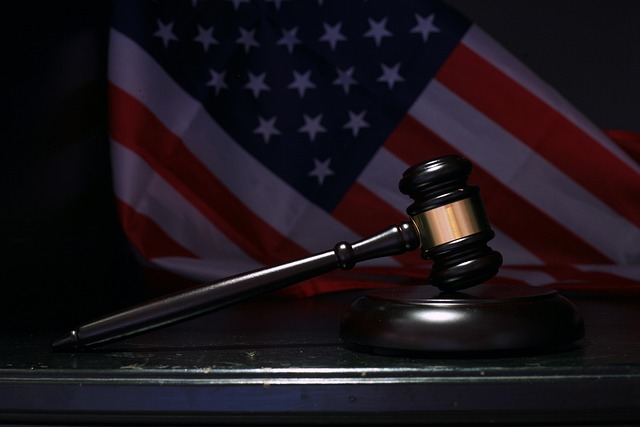Plea negotiations are a strategic, pivotal skill for criminal defense attorneys, enabling them to advocate for clients' interests and shape legal proceedings. By discussing charges with prosecutors, lawyers can secure favorable outcomes like reduced sentences or deferred prosecution, significantly impacting trial results. This process, crucial in high-stakes cases, involves complex discussions aimed at mutually beneficial agreements. Effective plea negotiations, driven by legal expertise and strategic approaches, can avoid lengthy trials and ensure just treatment within the criminal justice system. Understanding these negotiations is key for defense teams to achieve extraordinary results and manage cases effectively, especially in white-collar defense.
Criminal defense attorneys play a pivotal role in navigating the complex criminal justice system. This article delves into the core aspects of their practice, focusing on plea negotiations as the foundation of effective defense strategies. We explore how these attorneys master the art of bargaining to secure favorable deals for their clients, ultimately impacting trial outcomes. From understanding plea agreements to post-plea procedures, this guide offers insights into the critical strategies and considerations that shape the journey from accusation to resolution.
- Understanding Plea Negotiations: The Foundation of Criminal Defense
- The Art of Bargaining: How Attorneys Secure Favorable Deals
- Trial vs. Plea Agreement: Weighing the Pros and Cons
- Strategies for Effective Plea Negotiation by Defense Counsel
- Post-Plea Outcomes: What Happens After a Guilty Plea is Entered?
Understanding Plea Negotiations: The Foundation of Criminal Defense

Plea negotiations are a crucial aspect of criminal defense, serving as the foundation for achieving favorable trial outcomes. This strategic process involves the accused and their attorney engaging in discussions with prosecutors to reach a mutually acceptable agreement short of a full trial. By understanding plea negotiations, defense attorneys can navigate complex legal landscapes and offer their clients meaningful alternatives.
The outcome of these negotiations significantly impacts the direction of a case. Skilled criminal defense lawyers leverage their expertise and knowledge of the justice system to advocate for their clients’ interests. Through effective communication and strategic planning, they can secure reduced charges, deferred prosecution, or alternative sentencing options. This approach not only ensures that their clients receive just treatment but also allows them to move forward with their lives while avoiding the stress and uncertainty of a trial. Ultimately, a well-managed plea negotiation can lead to achieving extraordinary results for his clients within the confines of the legal system, fostering trust between attorneys and both the philanthropic and political communities.
The Art of Bargaining: How Attorneys Secure Favorable Deals

The art of bargaining is a critical skill for Criminal Defense Attorneys, who often act as intermediaries between their clients and prosecutors. Plea negotiations, a pivotal aspect of criminal defense, involve complex back-and-forth discussions aimed at reaching an agreement that benefits both parties. This process significantly influences trial outcomes, potentially avoiding lengthy and costly legal battles.
Attorneys utilize their expertise in the law, understanding of procedural rules, and knowledge of judicial tendencies to secure favorable deals for their clients. By weighing the evidence, assessing potential sentences, and considering the respective business interests of both sides, lawyers can navigate these negotiations effectively. This strategy is especially crucial in high-stakes cases, where the consequences are severe and the stakes are high, ensuring that justice is served while mitigating harm for their clientele.
Trial vs. Plea Agreement: Weighing the Pros and Cons

When facing criminal charges, understanding the options available for resolution is crucial. One key decision involves choosing between going to trial or accepting a plea agreement. Both strategies have their advantages and disadvantages, with plea negotiations significantly influencing trial outcomes. While a trial offers the chance for an accused person to present their innocence before a jury, it’s often a lengthy and costly process with no guarantee of a favorable verdict. In contrast, plea agreements allow for a more direct path to resolution.
In the context of white-collar defense, skilled attorneys negotiate on behalf of their clients, aiming for the best possible outcome. These negotiations can lead to reduced charges or even dismissal, providing an alternative to the potential risks and consequences of a trial. An unprecedented track record in successful plea negotiations demonstrates the attorney’s expertise in navigating complex legal landscapes, ensuring their clients receive just treatment within the criminal justice system.
Strategies for Effective Plea Negotiation by Defense Counsel

Plea negotiations are a critical aspect of criminal defense, playing a pivotal role in shaping trial outcomes. Defense counsel employ various strategies to advocate for their clients, ensuring the best possible result. One key approach is understanding the value of each case and its unique circumstances. This involves assessing the strength of evidence, potential sentencing guidelines, and the client’s prior record or lack thereof. By evaluating these factors, attorneys can make informed decisions about whether to accept a plea offer or proceed to trial.
Effective negotiation also requires strong communication skills. Defense counsel must clearly articulate their client’s position, highlighting any weaknesses in the prosecution’s case or potential benefits of a plea deal. They should guide their clients through all stages of the investigative and enforcement process, ensuring they make informed choices. This strategic approach can lead to favorable outcomes, especially in high-stakes cases, where a skilled attorney’s negotiation skills can make the difference between a lengthy prison sentence and alternative resolutions for his clients.
Post-Plea Outcomes: What Happens After a Guilty Plea is Entered?

After a guilty plea is entered, the focus shifts from navigating the criminal process to understanding post-plea outcomes. This stage involves sentencing procedures, where the judge considers factors like the severity of the crime, mitigating circumstances, and the defendant’s prior record. The outcome can range from probation and community service to imprisonment, depending on the jurisdiction and the specific agreement reached during plea negotiations.
Plea negotiations play a pivotal role in shaping these outcomes, offering alternatives to potential jury trials. For his clients, this process provides an opportunity to avoid the uncertainty and harsher sentences often associated with successful prosecution at trial. Additionally, plea bargains can have implications for the broader philanthropic and political communities, as they impact crime rates, justice perception, and societal safety.
Criminal defense attorneys play a pivotal role in shaping the outcomes of criminal cases, particularly through plea negotiations. By mastering the art of bargaining and employing effective strategies, these professionals can secure favorable deals for their clients, often avoiding the risks and uncertainties of a trial. Understanding plea negotiations is essential, as it forms the foundation for a successful defense strategy. In the end, how plea negotiations are handled directly impacts trial outcomes, making it a crucial aspect for both attorneys and clients to grasp.






